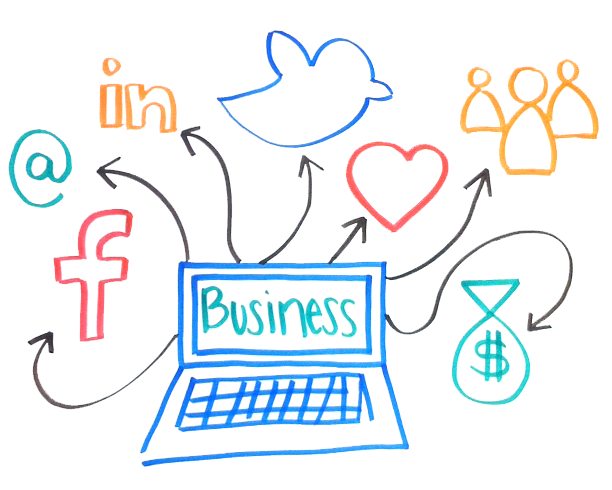
The travel industry is the number one industry that benefits from social media. Social media allows for trip planning, sharing, inspiration, and drives engagement among vacationers. Consumers are always looking for suggestions, recommendations, and insight on social media having since they’ve built trust among their group of followers and friends through Twitter and Facebook. They gain ideas and information on where to go on holiday or vacation through social media with 75 percent also sharing some form of content on the web when they return home from a vacation. By creating a social media site for your hotel within the travel industry, you are increasing your brand affinity as well as driving purchases.
Facebook is still the mainstream when it comes to social media. With 1.15 billion active users worldwide – nearly 50 percent of the world’s internet users – and with capabilities including sharing, uploading photos, searching, as well as posting, Facebook is a great marketing tool for businesses. It not only allows businesses to create relationships with customers, but build personal connections through sharing links and images that capture the audience’s attention.
The goal is to connect with the audience, and post information that will interest them, such as links to places to visit during their stay or pictures of the surrounding area. (Keep in mind that these posts should still have a tie to your hotel and objectives.) When using Facebook, there are two different options: a Facebook Profile or a Facebook Page.
A Facebook Profile is for an individual and for social purposes, not business purposes.
A Facebook Page is meant for organisations and businesses. When creating one of these, Google will display a link to your hotel’s Facebook page in a Google search. In addition, Facebook has analytics tools and Insights for businesses. The goal of having a Facebook Page is increase the number of likes for your Page, which they can do by clicking that iconic blue thumb icon. By doing so, your business can build relationships with your current customers and prospective consumers.
Twitter is a niche service. With 218 million active users worldwide, Twitter might not be as large as Facebook, however, it is up and coming. Indeed, if you know anything about PageRank algorithms, Twitter has actually surpassed Facebook in terms of links. This means that more people are linking to content on Twitter pages than they are linking to Facebook!
A company can use Twitter to target customers, making it more personable than Facebook. For regular Twitter users, ‘tweeting’ becomes part of their daily routine; active users log in every day, numerous times a day. In addition, unlike Facebook, with Twitter every tweet arrives at every follower’s feed so there’s more chance of it being seen.
For a business, tweets should be broken down into three categories: Promotion; Sharing; and Dialogue. Promotion consists of endorsing your own hotel through posts about your company. Sharing is all about distributing content, so tweets about information that is not only applicable to your audience but relevant, for example, the events in the area of your hotels location. Dialogue includes directly tweeting at your audience – asking questions and expecting responses – trying to engage your consumer base on a personal level.
Keep in mind that you need a balance of these three. Too much promotion will bore your audience, too much sharing will interest your audience (though this interest may be directed at the other websites that you are posting about), and too much dialogue is not advertising, but chatter. Keeping in mind these three types of tweets will allow you to take advantage of Twitter, the best place for engagement and customer service.
Every hotel’s goal is to get customers to increase their bookings and stay at their hotel. Facebook and Twitter are two types of social media that can help convince these customers to do so. Using these platforms, you can build better relationships with customers. As a hotel you want to inspire your audience to visit your location through Facebook and Twitter and drive traffic to your website. Take advantage of the social media available to your business!





